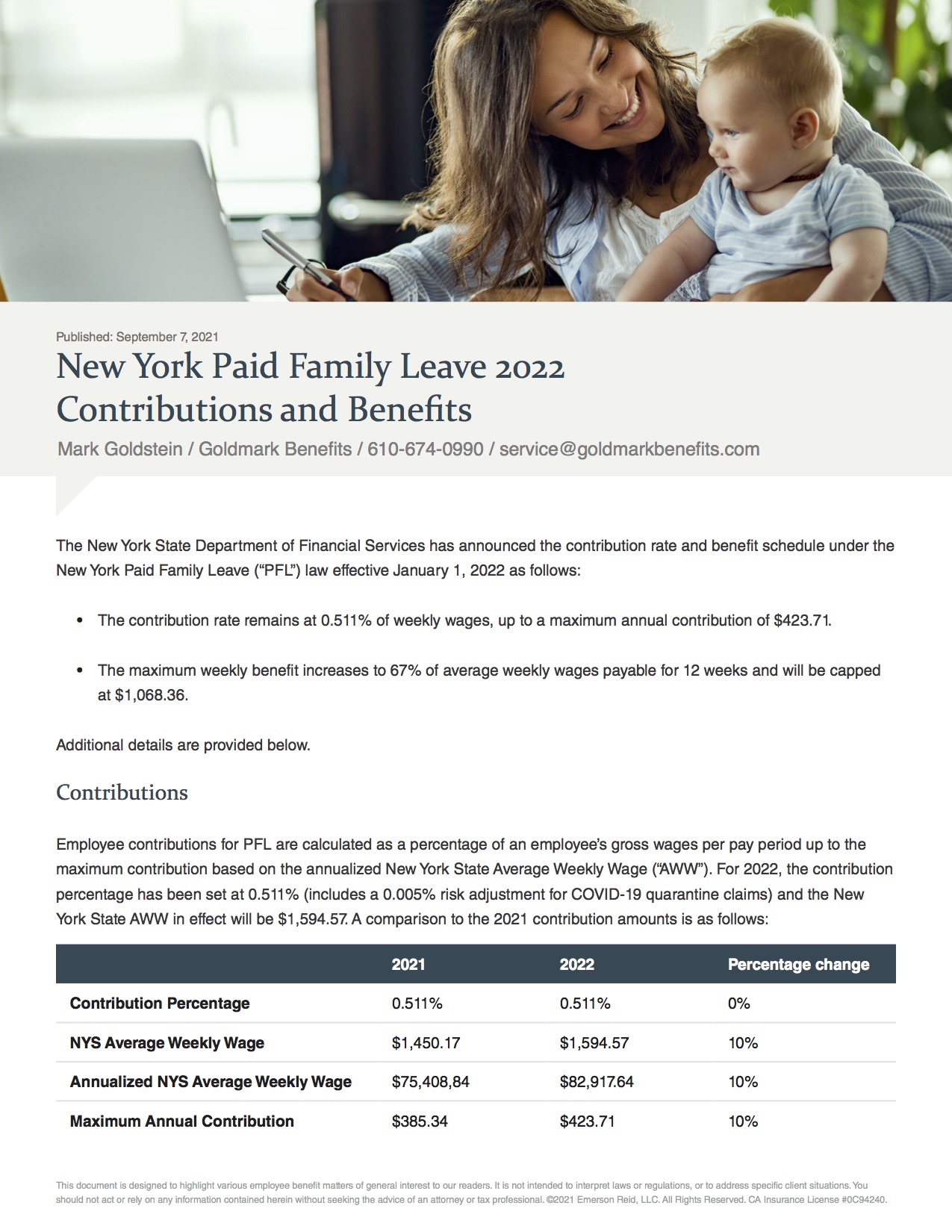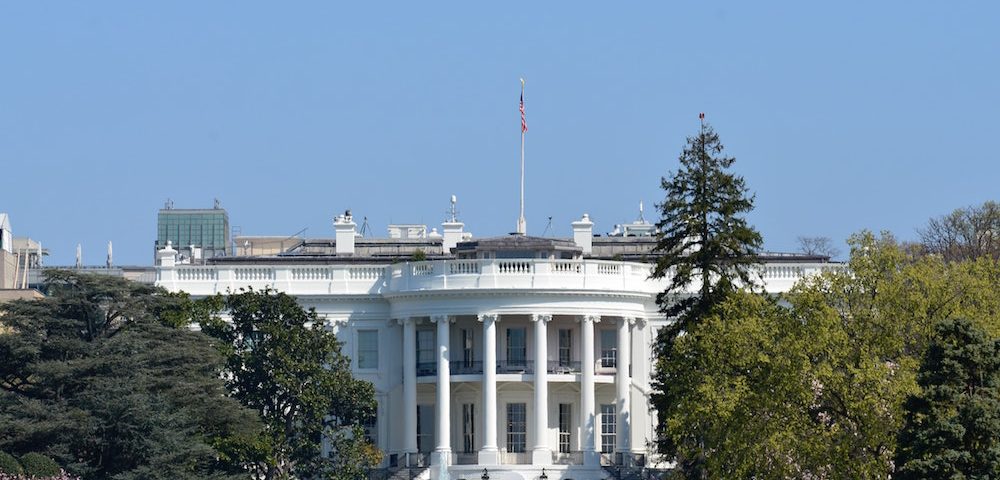
New York Paid Family Leave 2022 Contributions and Benefits
September 13, 2021
Medicare Part D Notification Requirements
September 28, 2021On September 9, 2021, President Biden announced a “Path out of the Pandemic,” indicating that he will use regulatory powers and other actions to increase the number of vaccinated Americans. In short, his plan provides the following:
- Employers with at least 100 employees must require their employees to be vaccinated or require unvaccinated employees to produce a negative test at least weekly before coming to work
- Federal workers and federal contractors must be vaccinated
- Booster shots should be available soon at no cost
- Health care workers at Medicare and Medicaid participating hospitals and other health care settings must be vaccinated
- Employers with more than 100 employees must provide paid time off to their employees to get vaccinated
• Large entertainment venues are requested to require proof of vaccination or testing for entry
• There are increased school safety measures
• Additional economic recovery is available
The plan includes a multi-pronged, comprehensive national strategy, discussed below. While the action plan lays out the administration’s next steps, it also raises several questions that will hopefully be addressed in the rulemaking process.
Vaccination or Weekly Testing
The Department of Labor’s Occupational Safety and Health Administration (OSHA) is developing a rule that will require all employers with 100 or more employees to ensure their workforce is fully vaccinated or require any unvaccinated workers to produce a negative test result on at least a weekly basis before coming to work. OSHA will issue an Emergency Temporary Standard (ETS) to implement this requirement. While penalties for non- compliance are not outlined in the President’s plan, the maximum penalty amount under existing OSHA enforcement protocols is $13,653 per violation. There will likely be challenges to this requirement based on overreach of OSHA’s authority.
We are hopeful that future guidance will answer the numerous unanswered questions we are left with including:
- Whether the employer will need to be involved in facilitating the weekly testing option for unvaccinated workers and what (if any) of the expense the employer must cover.
- Under current guidance, group health plans are not required to cover COVID-19 testing as it relates to an employment requirement. Will the Departments revisit this guidance in light of this new directive by the President?
- How does the mandate apply to a remote workforce who do not “come into work”?
- While the mandate applies to employers with 100 or more employees, are there any steps employers with fewer than 100 employees should consider?
- Will the availability of a booster shot affect what it means to be “vaccinated” for this purpose (i.e., do you need the two-shot series or two shots plus the booster to be considered vaccinated)?
- How will the new availability of free tests at pharmacies affect this mandate?
Subsequent to the President’s announcement, the IRS issued a reminder that the cost of home testing for COVID-19 is an eligible medical expense that can be paid or reimbursed under health flexible spending arrangements (health FSAs), health savings accounts (HSAs), or health reimbursement arrangements (HRAs). Additionally, costs of personal protective equipment (PPE) such as masks, hand sanitizer and sanitizing wipes, for the primary purpose of preventing the spread of COVID-19 are eligible medical expenses that can be paid or reimbursed through these accounts.
Vaccinations for all Federal Workers and Federal Contractors
All federal executive branch workers must be vaccinated. The President also signed an Executive Order requiring employees of contractors that do business with the federal government to be vaccinated.
Vaccinations for Providers who Accept Medicare or Medicaid
The Centers for Medicare & Medicaid Services (CMS) is taking action to require COVID-19 vaccinations for workers in most health care settings that receive Medicare or Medicaid reimbursement, including but not limited to hospitals, dialysis facilities, ambulatory surgical settings, and home health agencies. This action builds on the vaccination requirement for nursing facilities recently announced by CMS, and will apply to nursing home staff as well as staff in hospitals and other CMS-regulated settings, including clinical staff, individuals providing services under arrangements, volunteers, and staff who are not involved in direct patient, resident, or client care.
Paid Time Off
OSHA is developing a rule that will require employers with more than 100 employees to provide paid time off for the time it takes for workers to get vaccinated or to recover if they are under the weather post-vaccination. This requirement will be implemented through the ETS.
Easy Access to Booster Shots
The Biden Administration is preparing for boosters to start as early as the week of September 20, subject to authorization or approval by the FDA and a recommendation from the Advisory Committee on Immunization Practices. Booster shots will be free and widely available across 80,000 locations – from pharmacies to doctors’ offices to health centers.
Individuals will be able to find a vaccination site at Vaccines.gov, including what vaccines are available at each site and, for many sites, what appointments are open. A toll-free number, 1-800-232-0233, will also be available in over 150 languages. Americans who have already utilized the text code 438829 or WhatsApp to get vaccine information will automatically receive a text with information on boosters, if and when recommended.
Large Entertainment Venues-Proof
The President’s plan calls on entertainment venues like sports arenas, large concert halls, and other venues where large groups of people gather to require that their patrons be vaccinated or show a negative test for entry.
School Safety
School safety measures include:
- Requiring staff in head start programs, Department of Defense schools, and Bureau of Indian Education-operated schools to be vaccinated
- Calling on all states to adopt vaccine requirements for all school employees
• Providing additional funding to school districts for safe school reopening
• Using the Department of Education’s legal authority to protect students’ access to in-person instruction
• Getting students and school staff tested regularly
• Providing every resource to the FDA to support timely review of vaccines for individuals under the age of 12
Increasing Safety and Care
Increased prevention and treatment efforts include:
• Mobilizing industry to expand easy-to-use testing production
• Making at-home tests more affordable
• Sending free rapid, at-home tests to food banks and community health centers
• Expanding free pharmacy testing
• Continuing to require masking for interstate travel and double fines
• Continue to require masking on federal property
• Increasing support for COVID-burdened hospitals
• Getting monoclonal antibody treatment to those who need it and training health care professionals to provide this treatment
Additional Economic Recovery
Other reforms include:
- New loan support for small businesses impacted by COVID-19
- A streamlined Paycheck Protection Program (PPP) loan forgiveness process
- Launching a Community Navigator Program to connect small businesses to the help they need
Employer Action
Further rulemaking is expected to implement the President’s vaccination mandate in the workplace. Employers should review this new information and prepare for compliance. In the meantime, employers may want to consult with legal counsel and think about crafting a vaccine policy that considers exemptions for employees with qualified disabilities as defined under the Americans with Disabilities Act, as well as employees with sincerely held religious beliefs, as defined under Title VII of the Civil Rights Act. We will continue to monitor these issues and keep you updated as guidance develops.
Mark Goldstein / Goldmark Benefits / 610-674-0990 / service@goldmarkbenefits.com





